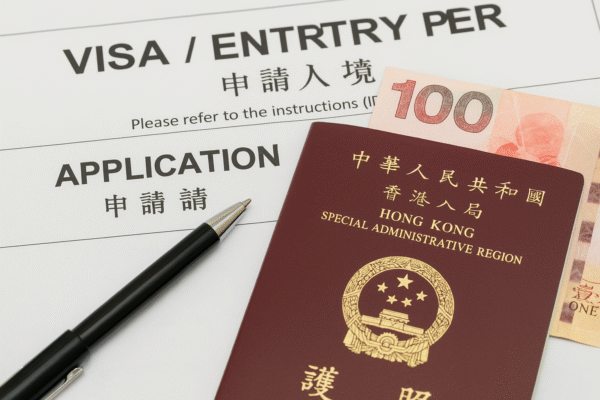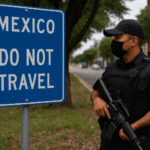Canada has broadened its travel advisory list for the summer and autumn of 2025, now including Malaysia alongside destinations such as the United Kingdom, Brazil, Denmark, the Dominican Republic, Germany and others. These updates stem from escalating global risks, encompassing terrorism, organized crime, and political instability.
Canada now urges travelers to exercise a high degree of caution when visiting Malaysia, particularly in the eastern Sabah region. Non-essential travel to areas like Lahad Datu, Kunak, Semporna, Sandakan, Kinabatangan, and Beluran is discouraged, due to a persistent risk of kidnappings and violence from militant groups along coastal and waterfront zones, especially after dark. Despite intensified local security efforts, threats remain relevant for both resort squares and diving sites such as Sipadan. Travelers are encouraged to stay alert to local advisories and updates.
Beyond Sabah, petty crime continues to concern tourists in urban hubs. Pickpocketing, purse snatching, and snatch-and-grab incidents remain frequent in crowded markets, transit points, and popular shopping areas. Solo travelers, women, and children can be particularly vulnerable, with motorbike thieves often targeting valuables in public squares. It’s wise to keep valuables secure and discreet—avoid wearing flashy jewelry or carrying large sums of cash.
United Kingdom: Terrorism Threat and Public Safety
The UK remains under a “substantial” terrorism threat, with attacks such as knife assaults, vehicle rammings, and bombings having occurred in recent years. Urban hubs like London, Manchester, and beyond are potential targets, particularly at crowded sites like tourist attractions, transit nodes, and public events. Canadian travelers are advised to stay vigilant in heavily trafficked areas, avoid protest zones or mass rallies where unrest may erupt, and follow official instructions during emergencies.
Brazil: High Crime and Risky Border Zones
Brazil remains a high-caution destination due to violent crime and organized criminal activities. While urban destinations—Rio de Janeiro, São Paulo, Salvador—attract millions of visitors, they also experience armed robberies, sexual assaults, carjackings, and shootings, particularly in neighborhoods like Lapa, Santa Teresa, and popular beaches. Travelers should avoid isolated areas, especially after dark, and secure themselves in well-populated, monitored accommodations.
Border regions around Brazil—near Argentina, Bolivia, Colombia, and other neighbors—pose additional dangers from drug trafficking and armed gangs. These areas, especially within 20 km of the frontier, are hotspots for violent crime. Tourists should avoid non-essential travel here and keep valuables discreet during transit, especially in crowded or traffic-snarled zones.
Denmark: Gang Violence and Extremism
Denmark faces elevated vigilance due to potential terrorist threats and rising gang-related activity. Tourist zones and transportation hubs—such as Copenhagen’s central districts—are monitored closely, particularly during high-risk events. Areas like Christiania and Nørrebro have experienced occasional violent outbreaks linked to organized crime, though tourists are rarely targeted specifically. Visitors are reminded to respect local norms—such as Christiania’s restriction against photography—and stay within well-lit and tourist-friendly districts.
Germany: Terror Alerts, Cybercrime & Theft
Germany continues to maintain heightened alertness over terrorist threats, notably in major cities such as Berlin, Munich, and Hamburg, especially around events or public gatherings. Knife attacks and vehicle-ramming incidents, while rare, have occurred. Simultaneously, cybercrime presents rising risks: public Wi-Fi networks are often exploited by fraudsters aiming to capture personal or financial data. Tourists should avoid unsecured connections and refrain from conducting sensitive transactions in public. Pickpocketing and bag-snatching in crowded areas—train stations, markets, transit hubs—remain common. Securing belongings and maintaining vigilance are essential.
Dominican Republic: Border Instability & Petty Theft
Canada’s advisory highlights crime concerns near the Haiti border, particularly around Dajabón, where political unrest and violence are frequent. Emergency response is limited, and disruptions can escalate quickly. In tourist areas, thieves often exploit tourists’ distraction. Common crimes include pickpocketing, drive-by theft, and intrusion into hotel rooms. Travelers should lock rooms, use in-room safes, and avoid walking unaccompanied after dark.
France, Netherlands, Italy: Petty Crime & Terror Caution
While not all flagged as new entries, other top destinations such as France, the Netherlands, and Italy remain under advisory due to recurring petty crime and occasional terrorism or unrest. Major European cities report regular incidents of pickpocketing—particularly around tourist landmarks, public transport, and festivals. High vigilance is key: use anti-theft bags, be cautious in crowds, and stay informed about shifts in local security dynamics.
For more travel news like this, keep reading Global Travel Wire

















